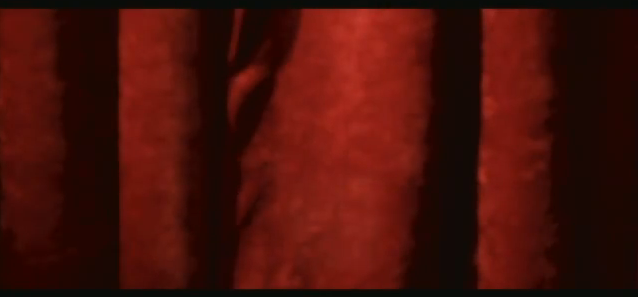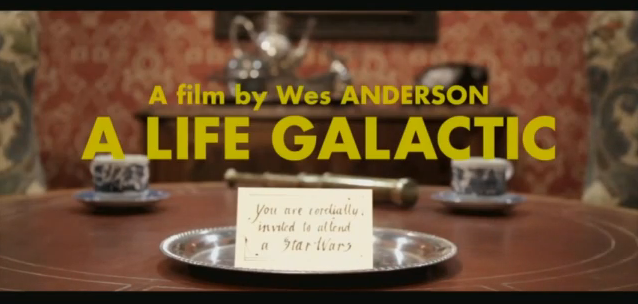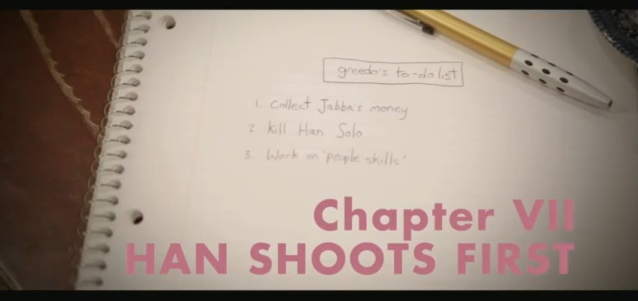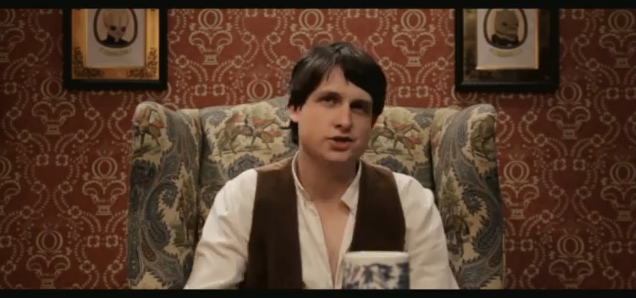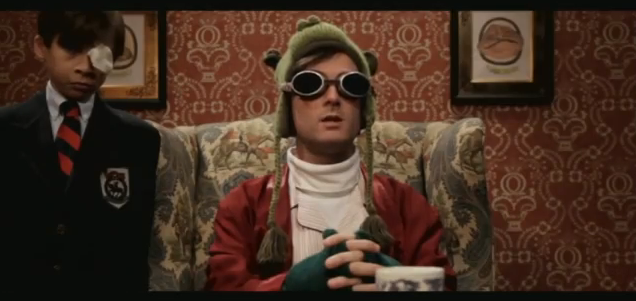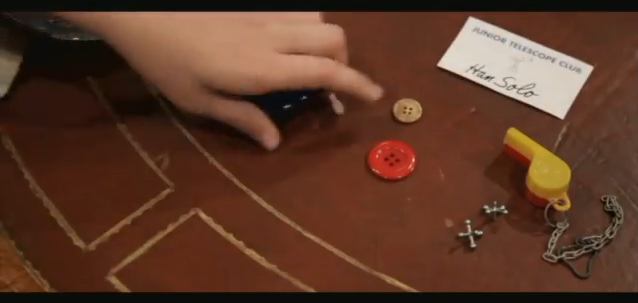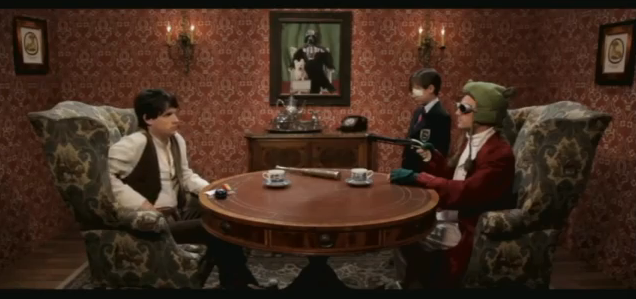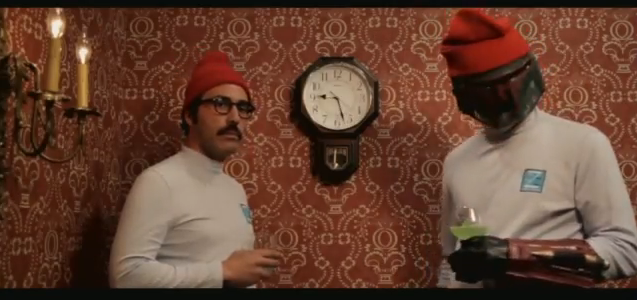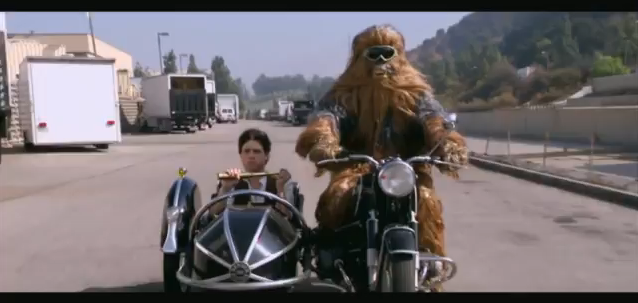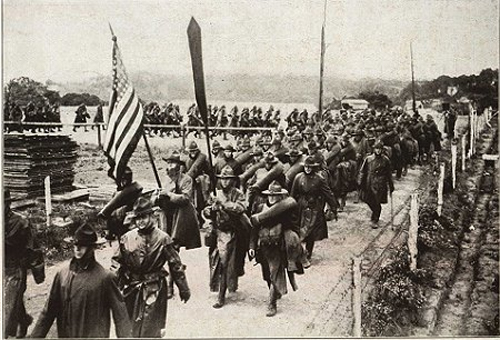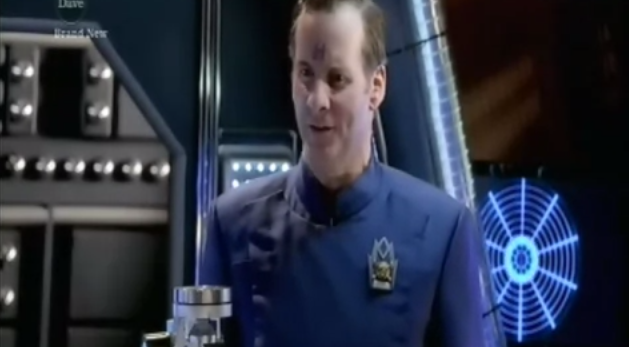Somehow. I will fix it later.
Your Friday Musical Interlude
“Use Me,” Bill Withers
Still Bill, 1972
Spotting the References in Conan O’Brien’s Star Wars by Wes Anderson Sketch
On November 8, Conan O’Brien presented another batch of skits based on the concept of a new director taking over Star Wars. The moment he debuted this concept I knew Wes Anderson was coming, and, sure enough, we eventually got him. (Though, I have to admit, the Woody Allen one is still my favorite.)
Anyway, Conan’s Wes Anderson parody is very clearly the work of a true fan. It doesn’t just hit his basic themes and atmosphere — which would have been funny enough on their own — but it contains a wealth of smaller details, many of them relatively obscure. So I thought I’d take a moment to itemize all of the ones I was able to recognize. And please do let me know what I’ve missed in the comments below.
We open with the drawing of a red curtain, a clear visual reference to Rushmore. The music is also an obvious echo of Mark Mothersbaugh’s score for that film.
Once the curtains part, however, we get a reference to The Royal Tenenbaums with a formal invitation on a table, similar to what we see in that film announcing Henry and Etheline’s wedding. The title, of course, is a reference to The Life Aquatic With Steve Zissou, and the font, good old Futura, is a general Wes Anderson standby.
However it’s worth noting that The Life Aquatic uses a Futura variant with hollow lettering, whereas this is solid. Therefore it actually calls to mind Fantastic Mr. Fox most of all. That’s four of his films out of the way already, so not bad!
And now we have Bottle Rocket, with a wonderfully observed riff on Dignan’s notebook of future plans…right down to the lovely touch of a rectangle around the page heading. The “chapter” caption hews most closely to being another Tenenbaums reference, though in that film our chapters are denoted by pages in a book rather than overlaid captions.
Han Solo is clearly meant to be played by Luke Wilson here. (AND EVERYWHERE.) Wilson only appeared in three of Anderson’s films and he looked quite different in each, so it’s easy to pinpoint this as being a reference to his performance in Bottle Rocket. The wallpaper is reminding me strongly of the parlor area in the Tenenbaum house, and we’ll deal with the pictures on the wall in a moment.
I’m not sure who Greedo is meant to be played by here, so please do chime in if you know.
The blazer worn by the boy and the very concept of the younger sidekick both come from Rushmore clearly enough, but the eye-patch is straight out of Moonrise Kingdom. It also took me several viewings to realize that Greedo is dressed the same as Bob Balaban’s narrator character from that film: green winter hat, red coat, white shirt, green fingerless gloves. That’s some admirable attention to details that most folks won’t even notice.
The goggles may be a reference to those worn by Max in Rushmore‘s montage of extracurricular activities.
Apart from Han’s membership card for the Junior Telescope Club — which is most likely another Rushmore reference but could also be one to The Life Aquatic — there’s more a thematic similarity to Anderson’s choice of details than anything specific. Though I do want to see a visual reference to Bottle Rocket‘s scene of Bob Mapplethorpe reaching for the car keys at the motel, I think that’s a bit of a stretch.
Might as well deal with the full room shot since we’re almost finished. I’ll admit that I want to figure out the significance of the baseball bat on the table, but I’m coming up blank. Anyone?
The paintings on the wall, particularly the one of Lord Vader with his little dog, are reminiscent of similar imposing paintings in Rushmore, The Royal Tenenbaums and The Life Aquatic.
Otherwise I’m coming up frustratingly empty on specific references dotted about the set. I know I’m missing something…help!
Two members of Team Zissou from The Life Aquatic witness the shooting, one of whom looks like he could be a specific reference to Jason Schwartzman — particularly as Cousin Ben in Moonrise Kingdom.
The other guy is some Star Wars shit.
I don’t know what to do with the little boy poking Greedo. Did something like that happen in Rushmore after Max got beaten up?
We finally get our lone Darjeeling Limited reference as the sketch closes, with the music clearly aping “This Time Tomorrow” by The Kinks. In The Darjeeling Limited the brothers Whitman did indeed ride motorbikes, but the sidecar here — and hirsute driver — make this much more of a reference to Fantastic Mr. Fox.
Han’s exaggerated gestures are also a reference to something, though I can’t put my finger on it.
Anyway, there you have it…all the references I was able to spot in Conan O’Brien’s Wes Anderson Star Wars parody. Please let me know what else you’ve found below!
There are obviously other Wes Anderson parodies to found on youtube, and they’re all so lovingly done that I might end up pulling a couple of those apart as well, if there’s interest. Maybe I’ll even do a less terrible job.
Maybe.
Armistice Day
When I was a boy, and when Dwayne Hoover was a boy, all the people of all the nations which had fought in the First World War were silent during the eleventh minute of the eleventh hour of Armistice Day, which was the eleventh day of the eleventh month.
It was during that minute in nineteen hundred and eighteen, that millions upon millions of human beings stopped butchering one another. I have talked to old men who were on battlefields during that minute. They have told me in one way or another that the sudden silence was the Voice of God. So we still have among us some men who can remember when God spoke clearly to mankind.
Armistice Day has become Veterans’ Day. Armistice Day was sacred. Veterans’ Day is not.
So I will throw Veterans’ Day over my shoulder. Armistice Day I will keep. I don’t want to throw away any sacred things.
–Kurt Vonnegut, Breakfast of Champions
Review: Red Dwarf X Episode 6: “The Beginning”
I think it says everything about Red Dwarf X that “The Beginning” floats to the top mainly because it wasn’t outright terrible.
In fact, at times, it came pretty close to being good, and it sustained that pretty-close-to-being-good level of quality about as well as “Lemons” did. That’s definitely welcome, as even though Red Dwarf X feels like an enormous misfire to me it’s nice to end on a high note.
Unfortunately that high note really is relative, as “The Beginning” is marred by the same kind of misjudgment that gave us Lister on hold in “Trojan”, Taiwan Tony in “Fathers and Suns” and the crew clowning around to silly music in the aforementioned “Lemons.”
Doug Naylor must not feel like he’s writing comedy unless somebody on set is broadly mugging, speaking with an exaggerated accent, or just generally acting like a desperate circus clown regardless of actual context. Here in “The Beginning” that’s manifested early on with Hoagy the Rouguey, or however that’s meant to be spelled, who is some kind of robot I guess who lives next door to Red Dwarf and gets the crew embroiled in his hair-brained schemes on a regular basis. Again, it sure was nice when being three million years in deep space felt different from living in an apartment building in a bustling city, but what do I know.
Poor Hoagy makes some funny faces and lets his accent drift pointlessly from Super Mario to Dr. Wily as he bothers Lister and then gets embedded in a wall. Why not, right? Lister promises he’ll be back to rescue Hoagy but for the first time all series I’m glad Doug didn’t bother to look over his first draft before shooting the episode, as the fact that we didn’t get a second helping of Hoagy is one of the best things about this one.
We’ve also got some rather atypical scenes in which a group of killer Simulants on a different ship engage in comedy routines separate from the Dwarfers. It’s not often that we see other characters getting their own spotlight, free of intervention from the main characters. In fact, only two examples really occur to me: “Holoship” and “Meltdown.” In the former it was brief and for plot reasons, free of comedy and used for necessary exposition. In the latter it was indeed a comedy routine, but its corniness was offset by the impressive disorientation of having such disparate historical figures bickering as they were.
Here it’s just…filler. It’s like a supporting feature that for some reason keeps interrupting the film you paid to see. The actors aren’t particularly funny, which is fine as they could get away with being simply menacing…but the menace falls through when they’re asked to act like such imbeciles, stabbing themselves on flimsy pretenses and re-enacting the Twentiety-Century Vole sketch from Monty Python.
It’s bad. It’s very, very, obnoxiously bad. It absolutely decimates the pacing, it prevents the episode from being what should have been an effectively claustrophobic experience (Red Dwarf‘s equivalent of “Balance of Terror”), and it populates deep space with yet more side characters that really shouldn’t be getting this many lines.
But…wait. I said I liked this one, right?
Well, I did. The rest of the episode was pretty solid, particularly the Rimmer material. Poor Chris Barrie hasn’t had a real chance to shine all series. Every so often he gets an appropriately Rimmery line he can sink his teeth into, but the rest of the time he’s relegated to broadly shouting sub-par material to an audience that wants to enjoy it so much that they don’t care what he says.
Here he gets to dig more deeply. Rimmer was never one-dimensional…or, rather, he wasn’t one-dimensional for long. There was an element of tragedy behind his needy professionalism, his longing for power, and his steadfast respect for the rules and etiquette of a civilization long dead. Here, for the first time in a long time, we tapped into that tragedy. And it worked.
Rimmer’s material here with his father is everything we should have seen in “Trojan” with his brother. His emotion was real, and as a result Chris Barrie managed to dial back his performance to where it was 20 years ago. He wasn’t an actor dressed again like his most famous character…he was Rimmer. His “fear” speech at the end was a particular highlight, and not only of this episode. It was a particular highlight of this and the three series that preceded Red Dwarf X. It was a lost and damaged man who was trying his hardest, and yet seemingly still destined to fail. It was uplifting and disheartening in equal measure, clever and foolish, sincere and inappropriate. It was good writing.
And there was a lot of good writing here. I don’t know that it balanced out the bad, or what that would even mean, but it sure as heck stood out in a great way. The cockpit and Blue Midget scenes were very reminiscent of series VI, even if it overall seriously paled by comparison. Kryten’s suggestion that they look out the window was immediately the best joke in the series up until that point, and it hearkened back to an era when the comedy was organic…when the characters didn’t have to dance and hump things to get laughs…when the vending machines didn’t hurl racial slurs at us as we walked down the corridors…when the characters carried emotional baggage with them…when the crew felt not like sitcom characters but like lost adventurers trying to find their way home…when the show didn’t coast on the goodwill engendered by putting its actors in front of an audience for the first time in however long and hoping for the best…
…when Red Dwarf was good.
Because Red Dwarf was good. Red Dwarf was great. Red Dwarf was a show that mattered. It didn’t spin its wheels and pad out time with irrelevant slapstick and dead-end subplots. It didn’t take laughter or deep thought for granted. It didn’t struggle so obviously for ideas.
And “The Beginning” reminded me of that time. Not thoroughly, and not consistently, but it got me there. It reminded me of why I’m sticking with this show, and reviewing this show, even when I so clearly don’t enjoy it.
It’s because I love where this show has been. It’s because I can love it again tomorrow. It’s because no matter what else happens, these are still characters that can be redeemed. Just because Rimmer didn’t bat an eye when his brother was shot through the heart in “Trojan” didn’t mean he couldn’t be symbolically shot through his own in “The Beginning.”
One bad episode didn’t undo the possibility of that happening. Four bad episodes didn’t undo the possibility of that happening. Hell, the 23 or so bad episodes since series VI didn’t undo the possibility of that happening, and they never could.
Because these characters are always there, locked, loaded, and ready for the right material.
“The Beginning” might well represent the beginning of such a rediscovery. It’s certainly possible, because when you brush aside the abandoned plot threads and fragmented bad ideas, there’s a great concept there, and a stellar central performance that promises big things.
I know better than to get my hopes up, but it sure would be nice if this show, moving forward, managed to deliver on that promise.
Time will tell. Until then, it was nice to get a glimpse, however fleeting, of a character I once, so long ago, fell in love with.
